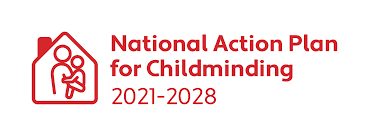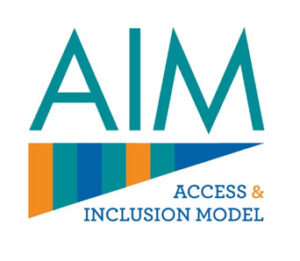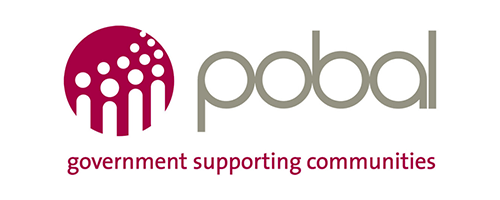-
Minister O’Gorman today unveiled a substantial budget package of €403 million
which brings State investment in early learning and childcare to more than €1
billion
-
This exceeds the First 5 target of €1 billion investment in early learning and
childcare five years earlier than expected
-
Parents using full time early learning and childcare services will see an average
reduction of 25% in their out of pocket costs under Budget 2023 measures
28th September 2022
Roderic O’Gorman, Minister for Children, Equality, Disability, Integration and Youth today announced a landmark €1.025 billion in funding under Budget 2023 for early learning and care and school aged childcare. As part of Budget 2023, parents using a full time service will see their early learning and childcare costs reduce by 25% on average as National Childcare Scheme funding gets a major boost.
This represents a €346m increase on last year’s funding and means the First 5 investment target of €1 billion by 2028 has been exceeded – five years ahead of time.
Making childcare more affordable
Budget 2023 introduces major reforms to the National Childcare Scheme (NCS) from January 2023, which will substantially improve the affordability of early learning and care and school aged childcare for families.
Additional funding of €121m has been allocated to reduce average parental co-payments for early learning and care and school aged childcare by 25%.
From January 2023, all families accessing registered early learning and care and school aged childcare will receive a minimum hourly universal NCS subsidy of €1.40 off the cost of early learning and care and school aged childcare. With the current minimum hourly NCS universal subsidy set at €0.50 per hour, this represents an additional €0.90 per hour off the cost of early learning and care and school aged childcare.
For parents on the minimum subsidy this will mean up to €3,276.00 off their annual bill per child. With up to €1,170.00 currently available per annum, this represents up to an additional €2,106.00 off the annual cost of early learning and care and school aged childcare per child. Parents on the maximum subsidies, based on an income assessment and the age of the child, can already receive up to €11,934 off their annual fee.
With a fee freeze on 2021 rates place in more than 90% of Partner services who signed up to the new Core Funding Scheme – there is confidence that these NCS increases won’t be absorbed into fee increases and will deliver real reductions for parents using these services.
Minister O’ Gorman said:
“Easing the cost of living in 2023 and, in particular, addressing the high cost of childcare for families has been my priority in Budget 2023.
Changes to the NCS, from January 2023, will reduce out of pocket costs by 25% on average.
Families can be assured they will see these reductions in costs, with 90% of services having frozen their fees through the new Core Funding scheme”.
Under Budget 2023 measures, the early learning & childcare sector will be supported through continued and increased investment in the new Core Funding scheme. Core Funding improves affordability for parents by instituting a fee freeze in participating Partner Services; access for parents by expanding the capacity being offered by the sector, particularly for younger children; quality including through improved pay, conditions and career structure underpinned by Employment Regulation Orders; and stability and sustainability for providers
The Core Funding scheme is in operation since 15 September 2022 and already has achieved very significant success in terms of the high levels of participation, resulting in the fee freeze applying to the overwhelming majority of parents. It also supported the agreement of Employment Regulation Orders leading to wage increases for the large majority of staff. There is also evidence of increased capacity.
Analysis shows the increased capacity is the type of capacity that is in highest demand relative to supply (i.e. more baby and toddler places as well as school-age places).
The geographical breakdown across the country also indicates expansion in urban and commuter areas where there has been significant pressure on places. Kildare, Wicklow, Meath as well as the four Dublin local authority areas, Galway, Cork City, Waterford and Limerick are all showing increases in capacity above national average figures.
To meet the cost of this expanded capacity and an increase in the numbers of graduates, the original allocation for Core Funding has been increased by €59m. This also allows €7m for a number of developments in year two of the Scheme (equivalent to €28m in full year costs). Year 2 will see the removal of the 3-year experience rule for graduate premiums, and other developments to the Scheme, to be informed by the emerging data from Year 1 of operation.
Speaking about the additional investment for Core Funding, Minister O’Gorman said:
The response from providers to become Partner Services in delivering Core Funding has been hugely encouraging and positive. With the scheme in operation less than two weeks, already there is substantial evidence of success in progressing the objectives of improved affordability and quality of early learning and care and school aged childcare, as well as expanding capacity.”
“Funding committed to in Budget 2023 will meet the cost of this expanded capacity and provide for further developments to Core Funding in Year 2 of the Scheme”.
Speaking about the overall Budget 2023 package for early learning and childcare, Minister O’Gorman said:
“In 2018, a commitment was made to at least double State investment in early learning and care and school aged childcare. This commitment – made in First 5, the 10-year whole of government strategy for babies, young children and their families and endorsed in the Programme for Government – translated to an investment target of approximately €1 billion by 2028.
“Today, I am pleased to announce that we have exceeded this target – five years ahead of schedule, which is a clear demonstration of the value this Government places on early learning and care and school aged childcare, given the benefits it confers to children and their families, society and the economy.”
Budget 2023 provides:
- €266m to support continued implementation of the Core Funding scheme for the first full programme year, September 2022 to August 2023, and into the next programme year from September 2023, with additional funding of €59m being made available to cover the costs of increased levels of capacity and numbers of graduates in year one and for a number of enhancements in year two of the Scheme.
- €357.6m for continued implementation of the National Childcare Scheme (NCS), offering supports to a greatly expanded cohort of children and families at significantly higher subsidy levels– with additional funding of €121m ensuring the hourly universal subsidy under the NCS can increase from 0.50c per hour to €1.40 per hour from January 2023.
Funding in 2023 also provides:
- €308.2m for the continuation of the ECCE programme that will benefit more than 108,000 children in 2023 and the continuation of the Access and Inclusion Model (AIM) to ensure more than 5,000 children with a disability can access and meaningfully participate in the ECCE Programme.
- €84.5m to support the delivery of a range of regulatory and quality supports for the implementation of the National Action Plan for Childminding, Nurturing Skills, the Workforce Plan, and the ongoing development of the registration and inspection system as well as policy development commitments set out in First 5 and the Programme for Government.
The allocation for Tusla the Child and Family Agency has also been increased to €935m.
This funding package will:
• Address increasing demand for Tusla services and the increasing complexity of many cases.
• Continue to address the provision of statutory residential care as recommended by the IGEES Spending Review of Residential Care (2020), reducing reliance on private residential care providers.
• Maintain supports for services to deal with domestic violence and gender-based violence and their effects and address recommendations arising from Tusla’s Accommodation Review of Refuge Provision.
• Support the community and voluntary sector funded by Tusla to deliver important services on its behalf.
The balance of the additional funding is spread across a range of services and supports provided by the Department.
€213m is being allocated to cover costs in relation to international protection accommodation. The focus will be on transitioning to a new model with expanded State-owned capacity and a greater focus on commissioning NGOs and not for profit organisations to provide services and supports, particularly to vulnerable applicants for international protection. For this reason, the allocation for the team implementing the White Paper to End Direct Provision and to establish a New International Protection Support Service is increasing by 41% to €22m, up from €15.6m in 2022.
The focus of expenditure will be on:
• Increasing the accommodation capacity within the state owned sector;
• Expanding the range of supports provided to international protection applications, including in relation to health, education, child and employment;
• Providing funding to local authorities to coordinate local integration supports including the establishment of a permanent network of Integration Support Workers;
• Commissioning NGOs to provide targeted supports, particularly for vulnerable applicants;
• Delivery of supported accommodation for vulnerable applicants;
• Rolling out of a second community integration fund, to support community integration initiatives and deliver benefits for local communities.
In view of the current high rate of international protection applicant arrivals, further funding will be sought for international protection accommodation as part of the Revised Estimates process when further work has been undertaken to advance the reform process.
In respect of costs associated with Ukraine (including accommodation, provisions for Tusla, Early Years services and support services), International Protection Accommodation Services and the Mother and Baby Home payment schemes costs, the Minister advised of a commitment from the Minister and the Department of Public Expenditure and Reform to dealing with these costs as part of the Revised Estimates process.
Provision has been made for a 5% increase in expenditure on Traveller and Roma initiatives by the Department, bringing total spending to €5.942 million in 2023. This increased allocation reflects a deep-rooted commitment to the continuing drive to achieve equality for the Traveller and Roma communities within Irish society.
The additional funding in 2023 will allow Traveller and Roma organisations to continue to offer much needed services to their communities. It will also provide funding for programmes to promote greater access by Travellers to education and employment. In addition, it will encompass funding for activities to promote and celebrate Traveller and Roma culture.
Action to promote gender equality continues to be a priority for 2023, building on the implementation of gender pay gap reporting and the introduction of domestic violence leave.
An increase of 5% has been secured for the National Women’s Council of Ireland for 2023, bringing the funding provided to them to €641k next year.
€5.865m is also being allocated to the broader gender equality budget, which includes the funding for the Women’s Collective Ireland.
A funding call for EU ESF gender equality projects will be held in 2023. This will support action to promote women’s access to employment and career advancement.
Funding to support action to promote LGBTI+ equality and inclusion is increasing to €1.055m for 2023.
The 2023 budget allocation reflects the Government’s ongoing commitment to furthering the vision of an Ireland where LGBTI+ people are visible and included, treated equally, healthy and feel safe and supported.
Provision has been made for a new funding call under the LGBTI+ Community Services Fund, a key initiative under the National LGBTI+ Inclusion Strategy, which has to date been a very successful mechanism by which to support programmes and initiatives throughout the country.
Legislation to ban conversion therapy will advance, recognising the harm that it occasions, particularly to young LGBTI+ persons.
Mother & Baby Homes Institutions Payment Scheme
The Government approved a package of €800 million for the Mother and Baby Institutions Payment Scheme in November 2021 and is committed to delivering this Scheme, a central measure in the Action Plan for Survivors and Former Residents of Mother and Baby and County Home Institutions, as soon as possible.
My Department is currently working intensively on the legislative and administrative arrangements to establish this Scheme. The funding required for the Scheme will be provided as part of the Revised Estimates Process.
Youth Services
Budget 2023 sees an allocation of €76m (an increase of €2.4m) for Youth Services. This will continue to progress the programme for Government commitment to invest in youth services. It will also meet the costs associated with the rolling enhanced programme of service provision based on identified need including capital works.
Ukraine Crisis
This Department has been at the forefront of the measures Government has taken to accommodate Ukrainians fleeing the war in their home country. To date over 35,000 people have been provided with accommodation directly or through this Department.
The cost of this programme for Ukrainians is significant and in light of the special circumstances to be dealt with separately as part of the Revised Estimates Process








